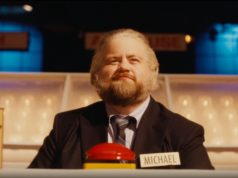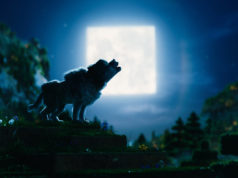The latter film came out last October, telling the story of the American soldiers who raised the flag on Iwo Jima after the troops landed there in World War II. Despite winning rave reviews from everyone except me, the movie sank quickly at the box office. Now the former film is playing here, has earned even better reviews, and has won three Oscar nominations, including Best Picture. I wish I could join the celebration, but while Letters From Iwo Jima is hardly a bad film, it’s a widely overrated piece of work.
The story is told through two characters: Lt. Gen. Tadamichi Kuribayashi (Ken Watanabe), the real-life commander of Japanese forces on Iwo Jima, and PFC Saigo (Kazunari Ninomiya), a simple baker from the provinces who only wants to get back home to see his wife and the five-year-old daughter he has never met. Kuribayashi knows that his men are vastly outnumbered and that Tokyo’s promises of reinforcements are probably empty. Saigo hates life on the hot, rocky, foul-smelling island and jokes that they should just let the Americans have the place, which gets him a beating from his sergeant that lasts until the general intervenes. There is, of course, no improbable victory in store, and the soldiers know as well as us that they’ll most likely die when the Americans come.
The movie is performed mostly in Japanese and partially based on a published volume of letters sent by Kuribayashi to his wife and children. Screenwriter Iris Yamashita, whose work has also garnered an Oscar nomination, does a pretty good job of developing the main characters as well as a few sharply defined supporting roles — a discharged military policeman widely suspected of spying for the higher-ups (Ryo Kase), an Olympic gold-medal equestrian rider and confidant of the general’s (Tsuyoshi Ihara), and a traditionalist lieutenant who detests Kuribayashi’s tactics and seeks a glorious death (Shidou Nakamura).
For all that, there are better war movies out there. The soldiers’ stories feel muted and predetermined, never approaching the piercing human drama of A Very Long Engagement. Nor does the film pack Saving Private Ryan’s or Platoon’s sense of hopelessness and futility. It certainly doesn’t illuminate an obscure corner of history like Rachid Bouchareb’s Days of Glory, a better World War II movie and one that is up for this year’s Best Foreign Film Oscar. Most of the critical adulation surrounding Letters From Iwo Jima has concentrated on the fact that Eastwood tells the story from the Japanese point of view. He surely deserves some credit for this, but he’s getting way too much. As moviegoers, we’re used to seeing war films told from the other side’s perspective (Das Boot, for one), and the director’s craft doesn’t distinguish this movie — Eastwood shoots the whole thing in the same gray hues as all his other films in this decade, and it’s become an annoying stylistic tic. If Letters From Iwo Jima had a Japanese director’s name on it, we wouldn’t be paying it much attention at all. That tells you all you need to know.
Letters From
Iwo Jima
Starring Kazunari Ninomiya and Ken Watanabe. Directed by Clint Eastwood. Written by Iris Yamashita, based on Tadamichi Kuribayashi’s letters. Rated R.











